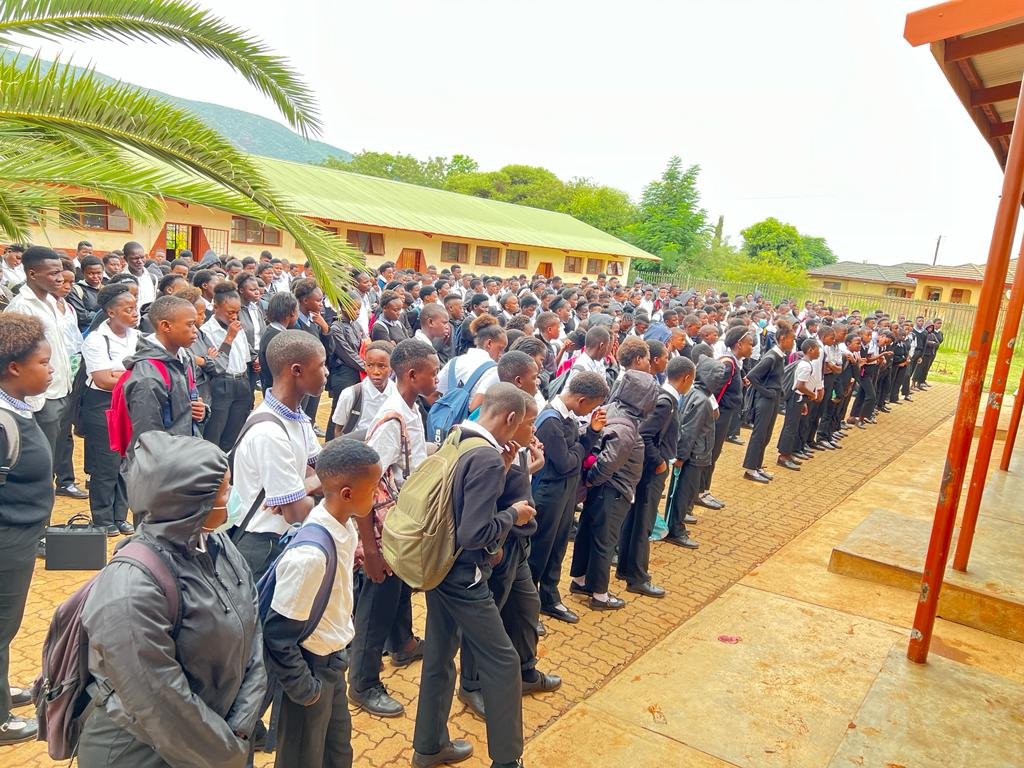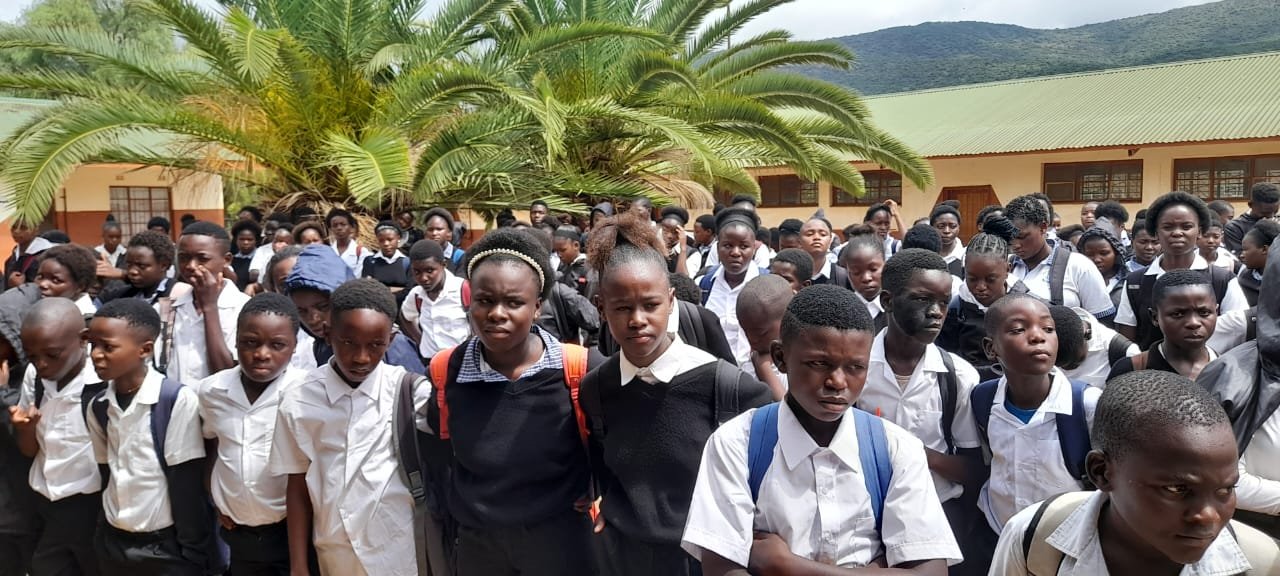AN enterprising group of Limpopo businesspeople have established a programme to support and mentor learners at a rural school where they once received their education.
The group from Sendenza village in the Vhembe district says the programme will complement the day-to-day teaching and learning in the classroom.
Mushaatoni Secondary School in Nzhelele, Limpopo scored 67.6% in the 2022 matric results. Now 18 former learners are on a mission to help improve this.
One of the initiators of the mentorship programme, Thivhilaeli Makatu, who studied at the school from 1982 to 1986 said the Student Support Programme includes 18 of the 500 former learners.
“We literally built the school, having put up the fence and all rock garden decor. It was 500 of us crammed into four classrooms, with three qualified teachers and the matriculants serving as what was called ‘private teachers’. [There were] no sports facilities to talk of, except for an open ground where a football and a netball pitch were laid out. The learner population was poor, as its community. Still teaching and learning ensued,” Makatu said.
He lamented the prevailing situation at the school.
“Mushaathoni today has more in terms of buildings and sports facilities, but perform dismally. Teachers are dejected, with reports of pervasive ill-discipline and vandalism. Learners are leaving in droves to other schools as far as 50 kilometres away. Parents do not discharge their responsibilities, expecting teachers to fill the gap. The community, with so many successful members of the community having studied at the school, look the other way. This is a sad situation that replicates itself throughout South Africa,” said Makatu.

He said the programme aims to organise learners into smaller focus groups in various mentorship streams to support teaching and learning.
Edward Mafune, a teacher at Mushaatoni Secondary school said the programme “is full of good ideas.”
He believes that such an effort in remote areas “was supposed to have been done long ago. The Student Support Programme is a relevant supporting initiative for learners.”
Limpopo scored the lowest average pass rate in the National Senior Certificate pass rate in 2022 at 72.1%. The province scored 66.7% in 2021.
Head Co-ordinator of the Student Support Programme, Gumani Mudzili said he found it peculiar and concerning to see many learners lingering around their homesteads during school hours.
“As we know our schools lack facilities but yet we expect good results, which is impossible. That is the gap in education. The parents are not involved, the teachers are not involved or they are there but no longer know how to handle the children,” Mudzili said.
The school has seen a rapid decline in learner enrolment in the past decade. The decline in the number of learners at schools has led to the closure of some schools and the amalgamations of others.
This has however resulted in learners walking long distances to access schools in neighbouring villages. This exercise also contributes highly to overcrowding in classrooms.
“There is little that is being done pertaining to the achievement and the positive changes of the matric results,” Mudzili said.
Mudzili highlighted that the department could do better to provide teachers with training, especially when there are drastic changes in the school’s curriculum. Mudzili said the results are disappointing as the province doesn’t belong at the bottom.
“I blame the schooling environment, the community these children come from, and the support they are getting, which is not up to standard,” Mudzili said.
The department of basic education’s report on selected aspects of access to education, grade repetition and learner performance describes the internal efficiency standard as being equal to one.
The number, one, signals the most internally efficient education system, where as an internal efficiency value higher than one indicates system inefficiencies of varied proportions.
Mudzili said the Student Support Programme is open to all learners in high school, but mainly features tailor-made mentorship sessions for matriculants.
Limpopo saw 111 618 learners register for examinations but only had 110 295 sitting for their final papers. This means that of the 153 360 learners that enrolled for grade 10 in 2020, 43 065 learners dropped out in the period between grade 10 and 2022 grade 12 exams.
Mudzili said the idea is that “mentors will be there for the children when parents are not, and we will be there for the teachers when the department is not.”
Education specialist Mary Metcalfe said there remains a high need for such support programmes, as it is one way of decreasing learners’ drop-out rate in schools.
“There’s a negativity towards rurality that we have to avoid, these are positive attributes and developments in Nzhelele that people should be doing everywhere. Dropping out is not a sudden decision, it gradually happens. You become more and more disengaged, so it accumulates and you eventually as a learner, find you aren’t going to school anymore,” Metcalfe said.
Rural areas still struggle with the lack of classrooms, poor access to services such as water and electricity, low Internet connectivity, and very few public or school libraries.
Metcalfe insists that the challenges rural schools face is the primary reason for the continuing poor academic performance in those schools.
Statistics reveal that families of 88% of learners who sat for the NSC examinations in Limpopo are beneficiaries of social grants.
The fact that 92% of the class of 2022 attended no-fee schools serving the poorest communities, paints a clear picture on some of the social issues that still need to be prioritised in improving the lives of children in rural schools.
“We have to understand the levels of poverty in places like Limpopo because that answers some of the reasons why it is at the bottom with regards to matric performance,” Metcalfe said. – news@mukurukuru.co.za
